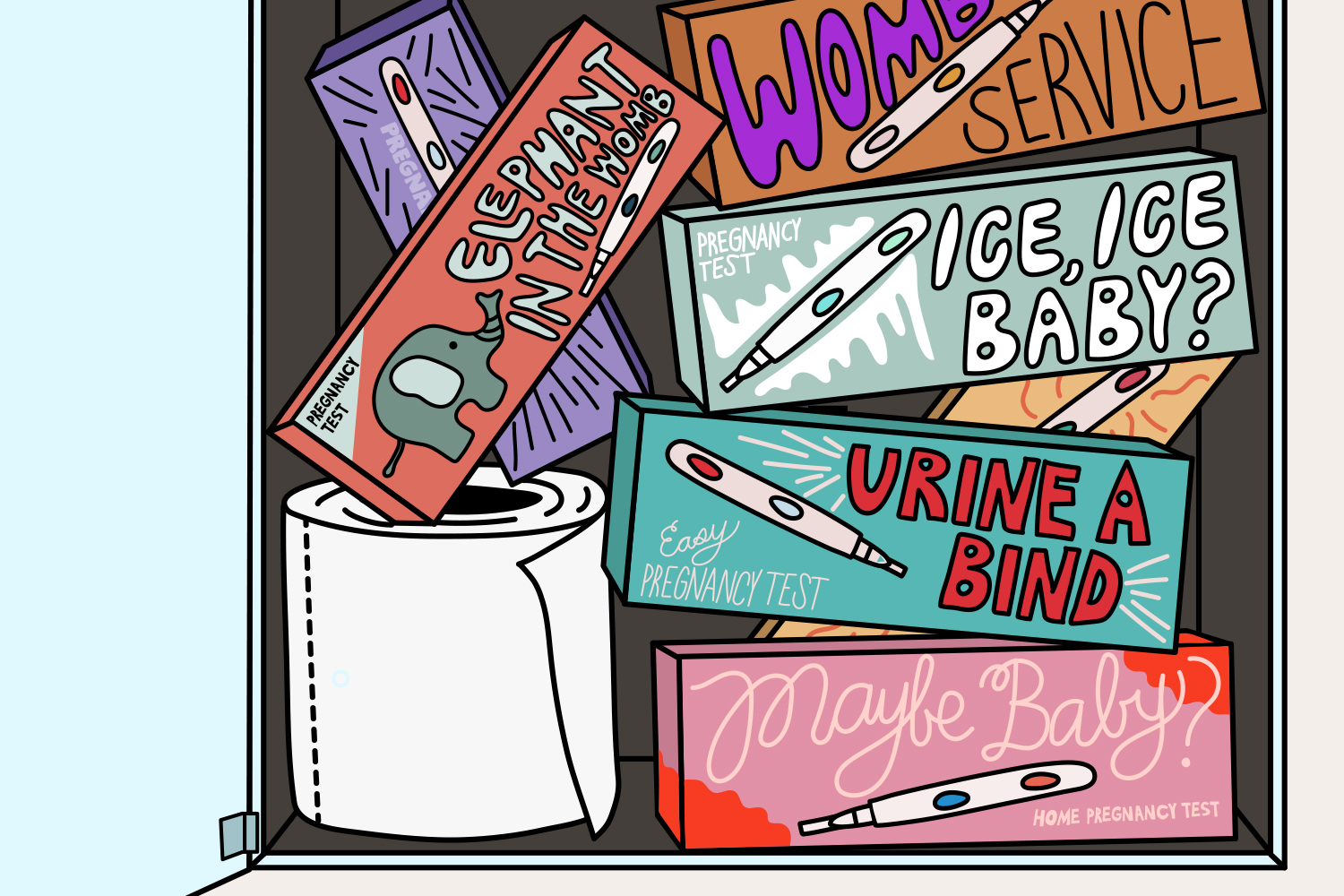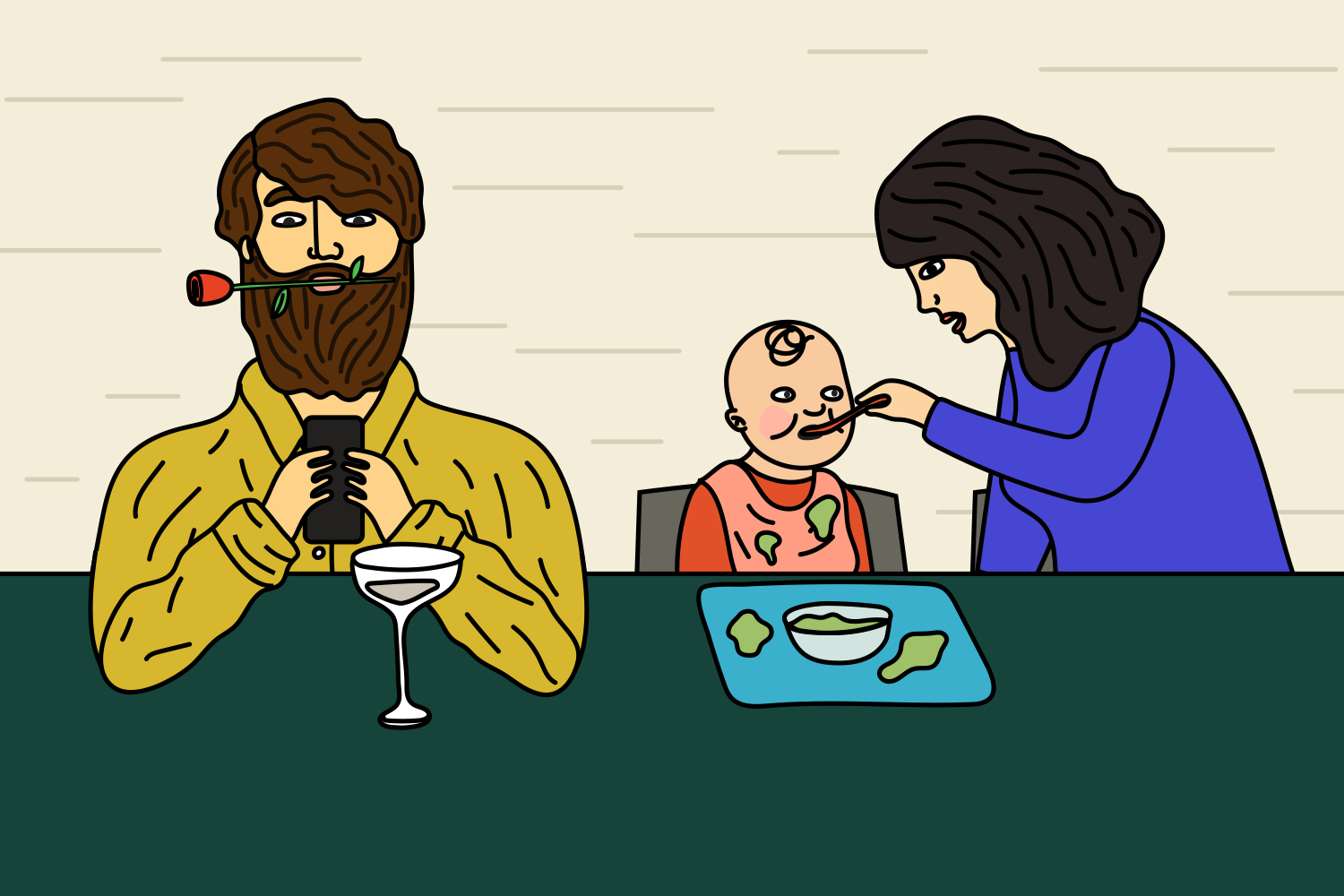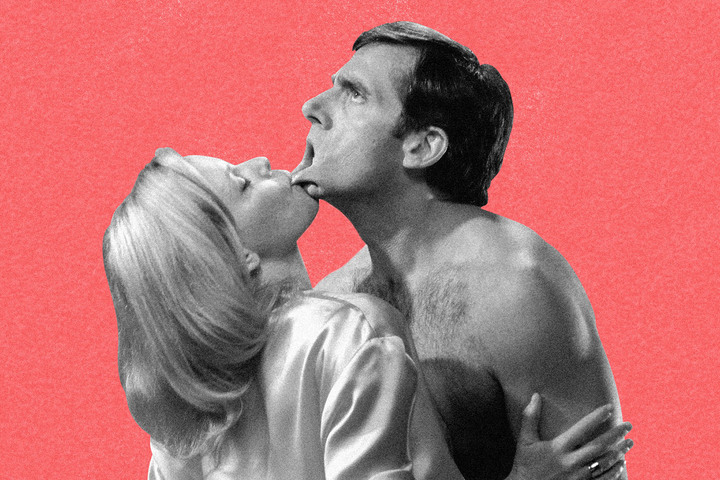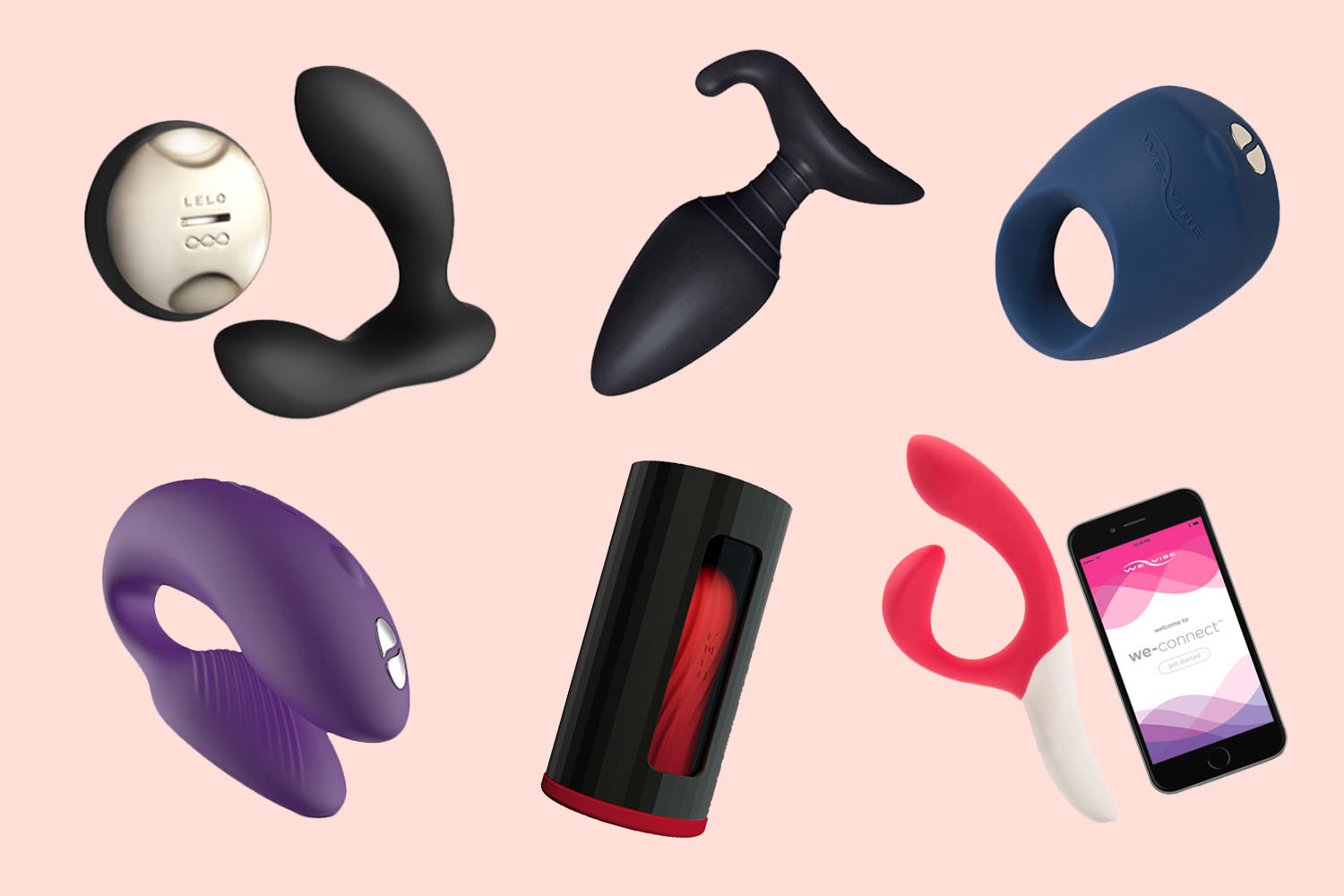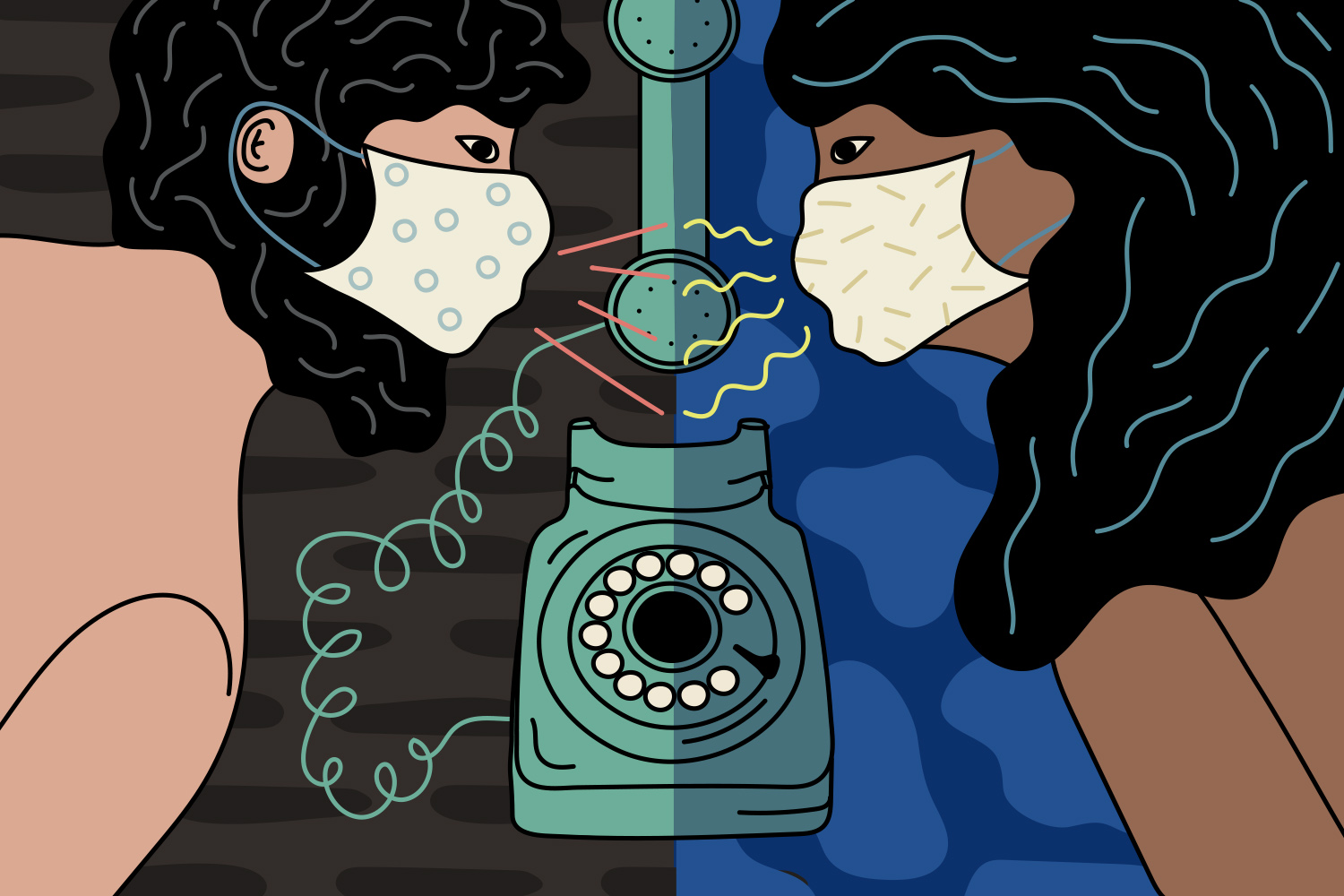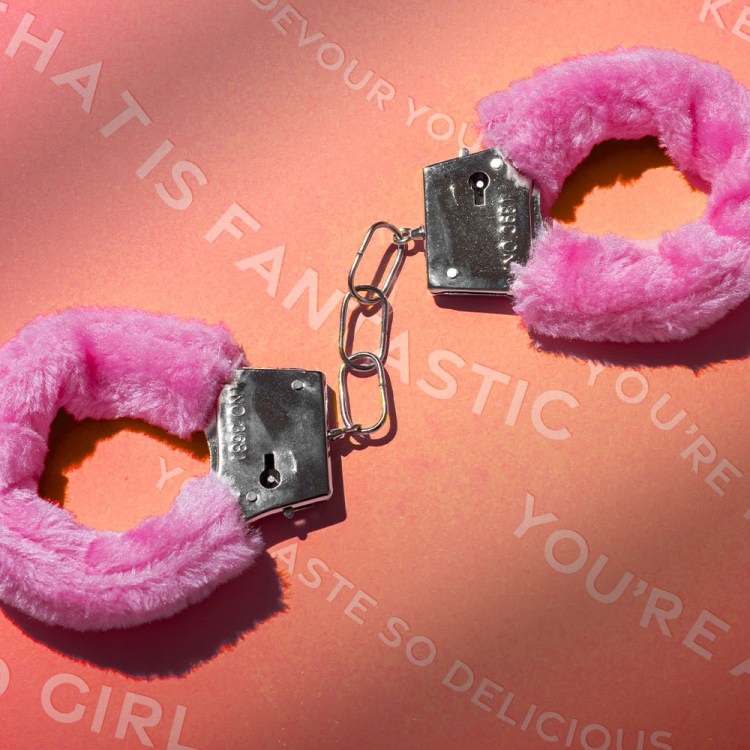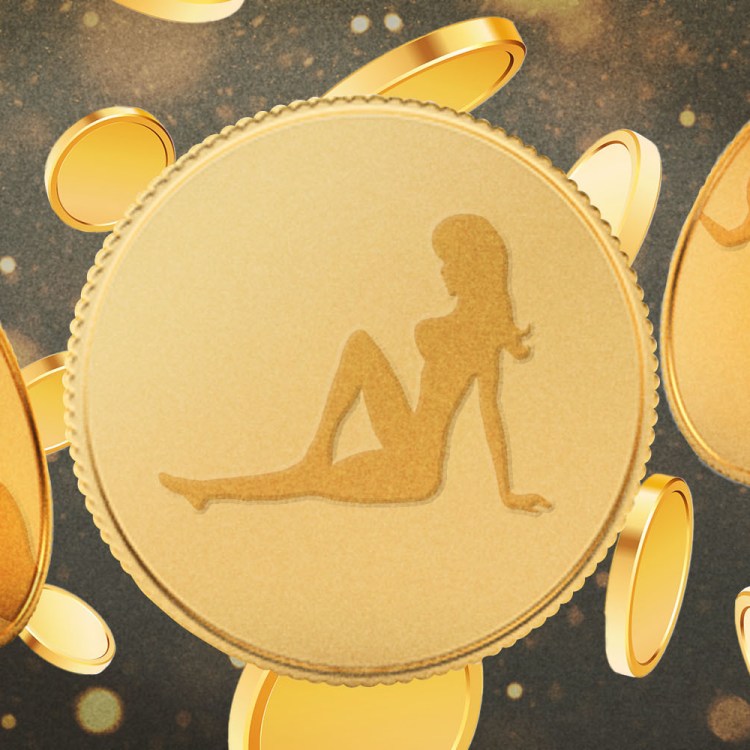“Do you think pubic hair is gonna be back in style after quarantine?” is a text message I recently received from a man I went on a few dates with shortly before going out on dates with people stopped being a thing.
To be honest with him, I hadn’t really thought about it. While I told him that if anything, I thought we might all start stripping ourselves of pubic hair with renewed vigor once we finally had a reason to again, he remained optimistic that our collective lockdown grooming lapse might result in “the triumphant return of the full 1970s bush.”
While my pre-lockdown date might be the first person to bring pubes into the conversation, he’s far from the only one making predictions about the future of sex post-coronavirus. From the very beginning of our pandemic timeline, coronavirus and sex have been, some might say, intimately intertwined. For a crisis perpetuated by interpersonal contact, it makes sense that one of the most physically intimate forms of said interpersonal contact is on people’s minds, and those people have questions. Is it sexually transmitted? (Probably not.) Can we still hook up with Tinder dates? (Swipe at your own risk.) Is everyone else masturbating this much? (Seems like it!)
Naturally, with all these questions about how coronavirus is affecting our sex lives in the here and now come just as many about what kind of longterm effects this pandemic may hold for our sex lives yet to come. There is no shortage of hopes, fears, queries and predictions about what our sexual futures hold, and — as with the pubic hair debate — for each prognostication there seems to be an equally plausible but opposite conjecture. There’s going to be a baby boom, unless of course there isn’t. Couples are all going to get divorced, unless this thing actually brings them closer together. We can’t cheat on our partners in quarantine, unless we can and are. Never mind, none of this matters because we’re never going to have sex again anyway.
Like many things we seem to know and think about this pandemic at any given point in time, our sexual forecasting is primarily conjecture. Fortunately, unlike most of the swirling coronavirus hearsay, our sex predictions tend to come from a place of fun, largely harmless guessing. Still, in an attempt to help streamline our sexual prognosticating, I asked a few experts to weigh in on some of our most pressing predictions. Keep in mind that while they may be experts, they’re not fortune tellers, but their guess is probably a little better than yours or mine.
Is there going to be a post-lockdown fuckfest?
“Fuckfest” is a word I’ve been hearing a lot lately, specifically in the context of what our triumphant return to post-lockdown hookups and sexcapades will look like. “There will be a brief, crazed fuckfest,” one dating app match informed me. “I think people are lining up their candidates now and deciding which one will be first.” Other fuckfest predictions have surfaced on social media: “I’m abt to hop on some birth control and get my hpv shot for the fuckfest post-quarantine,” tweeted one responsible fuckfest hopeful, while another reminded us that “the longer the lockdown … the bigger the fuckfest when it’s over,” in what I can only hope will become a popular post-quarantine proverb.
The logic behind the fuckfest theory is simple: People are extra horny right now (we know this from the internet), so once lockdowns lift and end our quarantine dry spell, the world will become a veritable Sodom and Gomorrah of pent up sexual energy set free. So is there going to be a post-lockdown fuckfest? More importantly, are you invited?
Unfortunately, according to Jess O’Reilly PhD., host of the @SexWithDrJess Podcast, our long-awaited return to sex will probably be a lot more gradual, and divided, than fuckfest lore might suggest. “Of course, we’re all craving physical connection and closeness right now, but the transition back to ‘normal’ is also going to be a difficult one,” she tells InsideHook. Like most aspects of post-pandemic recovery, getting back to our old sex and dating lives isn’t going to be like flipping a switch. Lockdowns won’t all be lifted at the same time, and with something as personal as sex, even people in the same city may be operating under very different timelines and beliefs.
“Those who are following the science of the virus’ spread across the globe will likely change the way they date and be more cautious,” says O’Reilly. “This doesn’t mean that they won’t date or physically connect, but they’ll likely take more precautions. They might spend more time chatting online or on the phone before meeting in person. And until we have a vaccine, they may be asking about symptoms and history before meeting for the first time.”
Meanwhile, as O’Reilly notes, there are still plenty of people who have been hooking up this whole time, lockdown be damned. “Those who are dismissing the virus as irrelevant will likely continue to take risks and pressure others into doing the same,” she adds. So even if we do get a post-quarantine fuckfest, those of you who have been getting laid all along can kindly consider yourselves uninvited. This fuckfest isn’t for you.
Is everyone going to be way kinkier after this?
Couples are stuck home together with nothing to do but each other! Sex toy sales are through the roof! There’s never been a better time to explore your every sexual fantasy! This whole ordeal has shown us that life is too short and subject to massive societal overhaul not to have the kinkiest sex you can imagine right now!
While recent research from Justin Lehmiller of the Kinsey Institute suggests that couples are generally having less sex during lockdown, it also suggests they are being more experimental when they do, as Laurie Mintz, Ph.D., author of the books Becoming Cliterate and A Tired Woman’s Guide to Passionate Sex and a sexpert for sex toy brand LELO, points out.
And while much of the recent boom in sex toy sales is attributed to sex-starved singles in quarantine, Mintz notes that some of it is also due to couples whose “experimentation includes bringing sex toys into the bedroom.” This, she adds, is good news for sex-havers everywhere. “Research is very clear: Women who use vibrators have more frequent and easier orgasms and women who have male partners who accept their vibrator use are more sexually satisfied.”
But if you’re one of many people waiting out a long sexual dry spell in quarantine, you can rest assured that all the presumably lucky couples cooped up together probably aren’t screwing each other’s brains out on the daily.
“Most of the people I speak to are not using this time to have the hottest sex of their lives,” says O’Reilly. “They’re not being more adventurous. They’re just trying to adapt to the stress of isolation, the unknown, job loss, schedule changes, event cancellations and the exhaustion of video meetings.” In other words, despite what all the talk of quarantine horniness online seems to imply, these really aren’t terribly sexy times for most people.
“Anecdotally, the couples I hear from are having the same frequency and quality of sex as they were prior to the pandemic,” adds O’Reilly. “Some are having a bit more because they have more time and others are having less sex because of stress; it seems to even out so that sexual frequency is about the same as usual.”
While it may seem to those of us enduring weeks of sexless isolation like every day in coupled quarantine must be a private fuckfest for two, it appears things are more or less business as usual for most couples in lockdown together, pandemic or no pandemic.
Are we all going to get death grip from masturbating too much?
We’re all spending more time at home with less to do, and especially for those of us who can no longer quench our sexual appetites with a partner, it stands to reason that we might be putting our idle hands to one specific use a little more often than usual. But for many people, increased masturbation can lead to the fear of reducing their capacity to reach orgasm during partnered sex.
Fortunately, according to Mintz, this idea of “death grip” is one we need to lose. While she tells InsideHook it’s true that “if a person gets used to reaching orgasm one way, it can be harder to reach orgasm in other ways,” the solution is simple. “Mix up your routine once in a while,” says Mintz, adding that a fun and easy way for men and women alike to revive their masturbatory routines is to incorporate toys.
Meanwhile, though Lehmiller’s preliminary research also suggests that masturbation rates are actually down right now, Mintz adds that anyone worried about masturbating “too much” in quarantine should take comfort in the reminder that masturbation is never going to “ruin” partnered sex, because there’s no reason to believe that sex for one is somehow inherently less “real” or valid than sex for two (or more).
This, says Mintz, quoting sex educator and author Cory Silverberg, “is a socially constructed idea whose time has passed. Real sex is precisely whatever we say it is.”
To summarize, don’t worry. You’re not going to ruin your appetite for the great post-lockdown fuckfest-that-probably-won’t-be by masturbating in the meantime.
What about the pubic hair thing?
It took some time, but I was able to find an expert to weigh in on the pubic hair debate.
“I hadn’t heard yet about pubic hair making a comeback post-lockdown, nor do I have any solid research to support (or refute) that hypothesis,” says Lyndsey K. Craig — the author of the paper, “Pubic Hair Removal Practices in Cross-Cultural Perspective,” and a graduate assistant and PhD candidate at the University of Nevada, Las Vegas — who kindly agreed to entertain my question anyway.
“My initial thoughts are that there are two potential outcomes,” says Craig. The first posits that “women (and some men) will grow accustomed to not grooming, and this behavior will simply carry on when things reach a new-normal.” Alternatively, she says, “pubic grooming will come back full-force with people attempting to go back to the way their lives were pre-lockdown.”
Additionally, Craig notes, any potential changes in pubic grooming habits depend heavily on why any given individual may groom or not groom in the first place. While those seeking new partners post-lockdown “may increase mate seeking behaviors and use whatever strategies they usually use,” Craig adds that those strategies don’t always involve pubic grooming. “There are many reasons why people groom their pubic hair; if their reasons are more personal (e.g., comfort or hygiene), their behaviors may not be affected by the lockdown at all,” she says.
Ultimately, as far as pubic hair is associated with sex, says Craig, “I imagine women and men will maintain their same grooming practices,” assuming they also maintain their pre-lockdown sex lives. In other words, hate to break it to a certain inquiring mind, but there’s no reason to suspect a great ’70s bush renaissance is necessarily around the corner.
What if we forget how to have sex?
I hear it’s like fucking a bike.
This article was featured in the InsideHook newsletter. Sign up now.

